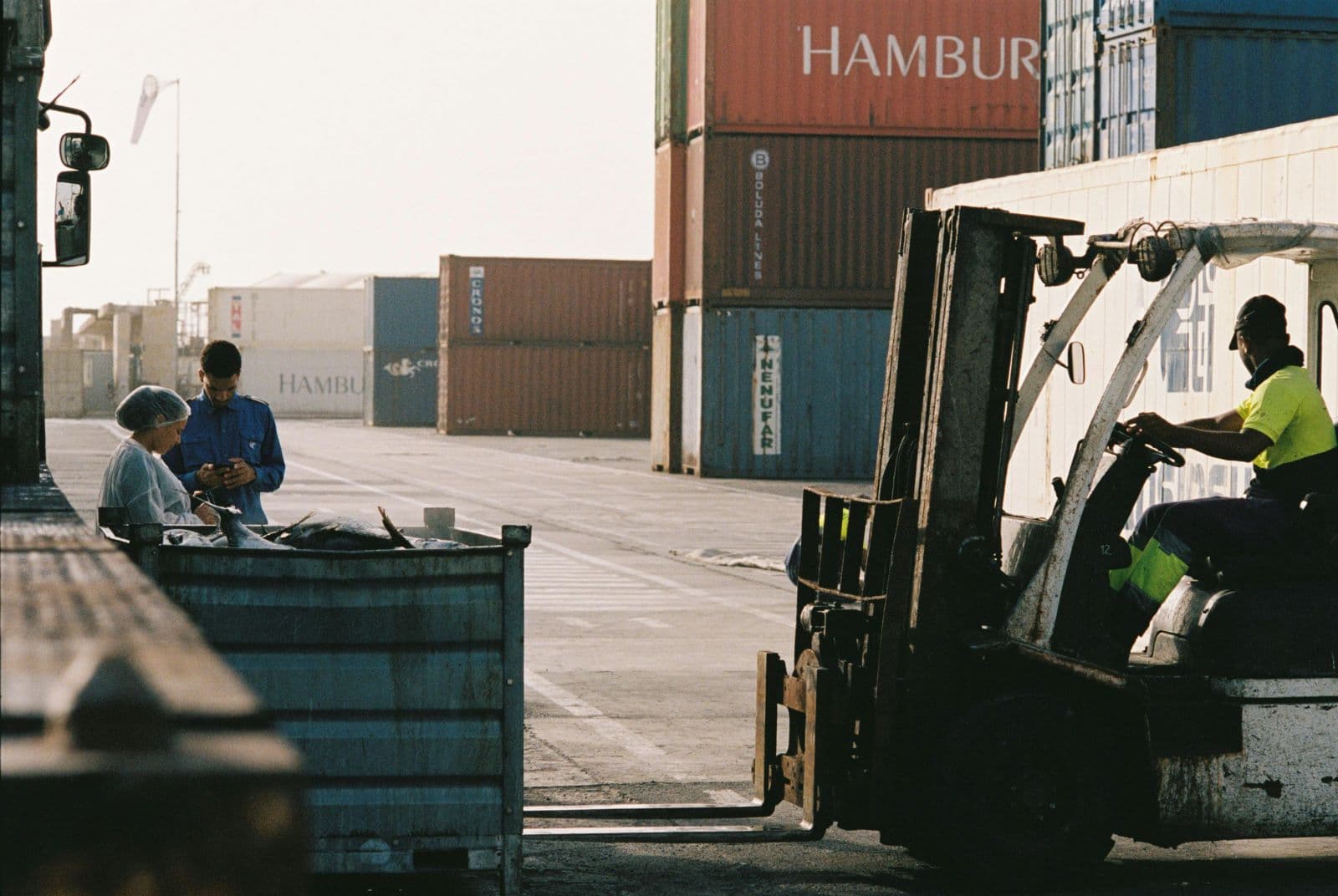
From minerals and agricultural products to manufactured goods, the commerce landscape of Africa is defined by a vast array of items flowing in and out of the continent. These goods include a wide variety of commodities. With significant commercial routes such as the Cape Route, which round the southern tip of Africa, the West African Coast, and the East African Coast, the continent plays a pivotal part in world trade. This is because of the continent's strategic location, which allows it to play a pivotal role in global trade. Yet, the environmental repercussions of maritime transportation, which include pollution of the air and water, emissions of greenhouse gases, and the deterioration of marine ecosystems, are substantial difficulties that require immediate attention.
The adoption of shipping procedures that are cleaner and more sustainable is one of the key focal points in the effort to lessen the environmental imprint found along trade routes in Africa. By advocating for the utilization of low-sulfur fuels, energy-efficient technologies, and emission reduction techniques, the International marine Organization (IMO) has been at the forefront of efforts to promote environmental sustainability in the marine sector for the past few decades. Through the implementation of legislation and standards aimed at reducing emissions and encouraging environmentally friendly shipping operations, African nations are further aligning themselves with these global initiatives. This alignment not only helps to protect the environment but also ensures that African countries remain competitive in the global market by meeting international standards for sustainable shipping practices. Additionally, it demonstrates a commitment to reducing carbon emissions and mitigating the impact of climate change on a global scale.
There will be difficulties encountered with the move to more environmentally friendly shipping. Obstacles to the widespread adoption of sustainable practices include limits in infrastructure, legislative frameworks that are insufficient, and economic restraints. To overcome these obstacles and pave the way for a more sustainable future, however, novel solutions are currently being developed. Initiatives such as strengthening port infrastructure, streamlining logistical operations, and promoting the use of alternative fuels are being driven by collaborative partnerships between governments, stakeholders from the corporate sector, and international organizations and organizations.
Integration of renewable energy technology into port operations is a noteworthy example of innovation that has been implemented to reduce the environmental imprint along trade routes in Africa. A reduction in dependency on fossil fuels and a reduction in carbon emissions are the results of the deployment of renewable energy sources such as solar panels, wind turbines, and other examples to power port facilities. When it comes to displaying their dedication to environmental stewardship, ports all over the continent, from Cape Town to Mombasa, are embracing renewable energy solutions as part of their larger sustainability initiatives. These initiatives not only help to protect the environment, but also contribute to long-term cost savings for port operations. By investing in renewable energy, ports are setting a positive example for other industries to follow in the fight against climate change.
Also, investments in environmentally friendly port infrastructure are increasing productivity while simultaneously lowering the negative impact on the environment. Ports in Africa are experiencing an overall improvement in their sustainability performance as a result of modernization initiatives.
These projects include the development of container terminals, the construction of shore power facilities, and the adoption of digital technologies for the tracking and administration of cargo. These activities help to reduce emissions of greenhouse gases and preserve marine habitats by improving operations and lowering energy usage. In addition, they contribute to the environment. by implementing waste management practices and promoting the use of renewable energy sources. Overall, these efforts are helping ports in Africa become more environmentally friendly and efficient in their operations.
A significant contribution to the achievement of sustainability along African trade routes is made by regulatory measures, in addition to technological improvements. Environmentally responsible shipping practices are being encouraged by governments through the implementation of laws such as the provision of tax incentives for environmentally friendly boats, the imposition of emission regulations, and the establishment of marine protected areas. Companies are given the ability to invest in environmentally friendly solutions and a culture of environmental responsibility is fostered within the marine industry when legislators create an environment that is favorable to regulatory compliance. This encourages companies to prioritize sustainability in their operations and invest in green technologies. By promoting environmentally responsible practices, governments are helping to protect marine ecosystems and reduce the industry's carbon footprint.
Additionally, increasing collaboration and knowledge exchange among stakeholders is an essential component of decreasing the environmental footprint along African trade routes. For the purpose of facilitating communication and cooperation on maritime concerns, including environmental preservation, regional cooperation initiatives, such as the African Maritime Transport Charter of the African Union, are a good example. Countries have the opportunity to have a greater influence and make collective progress toward their sustainability goals if they coordinate their efforts, share best practices, and exchange technical skills. Collaboration on a regional level can also lead to more efficient use of resources and improved monitoring of environmental impacts. By working together, countries can address common challenges and work towards sustainable development in the maritime sector.
This is why creating special economic zones along African trade lines is so important for promoting sustainable and environmentally friendly business practices. These special areas, like Ghana's Dawa Industrial Zone, are places for business activities. They encourage new ideas and help the region's trade network last. Special economic zones are in a unique situation to work with global efforts to make shipping cleaner and less harmful to the environment. The Dawa Industrial Zone is located along important trade lines, which not only helps the economy grow but also makes it possible to use green technologies and environmentally friendly methods. These zones can set the standard for how environmentally friendly businesses should be by working together with governments, corporate stakeholders, and foreign organizations. Special economic zones, like the Dawa Industrial Zone, use renewable energy technologies, proper waste management, and strict environmental rules. This shows a dedication to lowering carbon emissions and minimizing the damage that trade activities do to the environment.
Taking a look into the future, the movement towards more environmentally friendly trade routes in Africa calls for unwavering dedication, inventiveness, and cooperation. The environmental concerns that are linked with maritime transportation have been addressed, and while tremendous progress has been made, there is still a great deal of work to be done. By harnessing the power of
technology, adopting renewable energy, strengthening regulatory frameworks, and cultivating partnerships, Africa has the ability to chart a course towards a future that is more sustainable and resilient for its many trade routes. This will not only benefit the environment but also contribute to the economic growth and prosperity of the region. With a collective effort and commitment to sustainable practices, Africa can lead the way in creating a more environmentally friendly and efficient trade network.
Moving toward sustainable trade lines in Africa also opens up chances for economic growth and new ideas. As companies and industries switch to more environmentally friendly methods, they need people who know a lot about renewable energy technologies, eco-friendly logistics, and ways to handle trash. This desire helps businesses and people get jobs, especially in fields that care about the environment.
Africa can also become a more desirable trade partner on the world stage by adopting healthy business practices. Businesses and customers around the world are becoming more concerned about the environment, so they are looking for partners and suppliers who follow eco-friendly rules. Africa can take advantage of this trend and get investment and partnerships from companies around the world that care about the environment by presenting itself as a hub for sustainable trade. This can lead to economic growth and development for the continent, as well as increased opportunities for innovation and collaboration. By prioritizing sustainable practices, Africa can position itself as a leader in environmentally conscious business practices on a global scale.
For trade routes to become more environmentally friendly, knowledge and awareness are also very important. Groups like governments, schools, and non-profits can work together to teach people about how important it is to protect the environment and how adopting sustainable practices can help. By giving people the tools and information they need, Africa can raise a group of leaders who care about the environment and will keep pushing for sustainability. This will not only benefit the continent but also contribute to the global effort in combating climate change and preserving natural resources for future generations. Ultimately, Africa has the potential to inspire and influence other regions to prioritize sustainability in their business practices as well.
In the end, Africa is an important part of world trade, so efforts to lessen the damage done to the environment along major trade routes are very important. Maritime traffic also causes a lot of damage to the environment. Groups like the International Maritime Organization (IMO) lead efforts to make shipping practices better and more environmentally friendly. These are very important for fixing problems like water and air pollution, greenhouse gas emissions, and the loss of marine ecosystems. Even though there are problems like limited facilities and limited funds, partnerships that work together are coming up with new ways to solve problems. For example, they are bringing renewable energy technology into port operations, making rules stronger, and encouraging cooperation across regions. Special economic zones like Ghana's Dawa Industrial Zone show how environmentally friendly business practices can work. They also show how important it is to invest in renewable energy, good trash management, and strict environmental rules. In the future, Africa's dedication to sustainability will not only help the environment but also boost economic growth, job creation, and new ideas. This will make the continent a world leader in environmentally friendly business practices and encourage others to follow suit through knowledge-sharing and awareness-raising campaigns.
More
updates

How Industrial Parks Are Powering Economic Growth in Africa
Blog∙30th April, 2025

Addressing The Infrastructure Gaps in Sub-Saharan Africa
Blog∙11th March, 2025

Regional vs. National Approaches to Trade Facilitation: Which is More Effective for Africa?
Blog∙11th December, 2024

Earn Big with Dawa Refer & Earn: Unlock Lucrative Rewards for Every Business You Refer!
Blog∙13th November, 2024

Leapfrogging the Growth Trap: Policy Initiatives for Developing Economies in a Globalized World
Blog∙4th October, 2024
